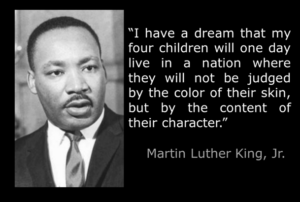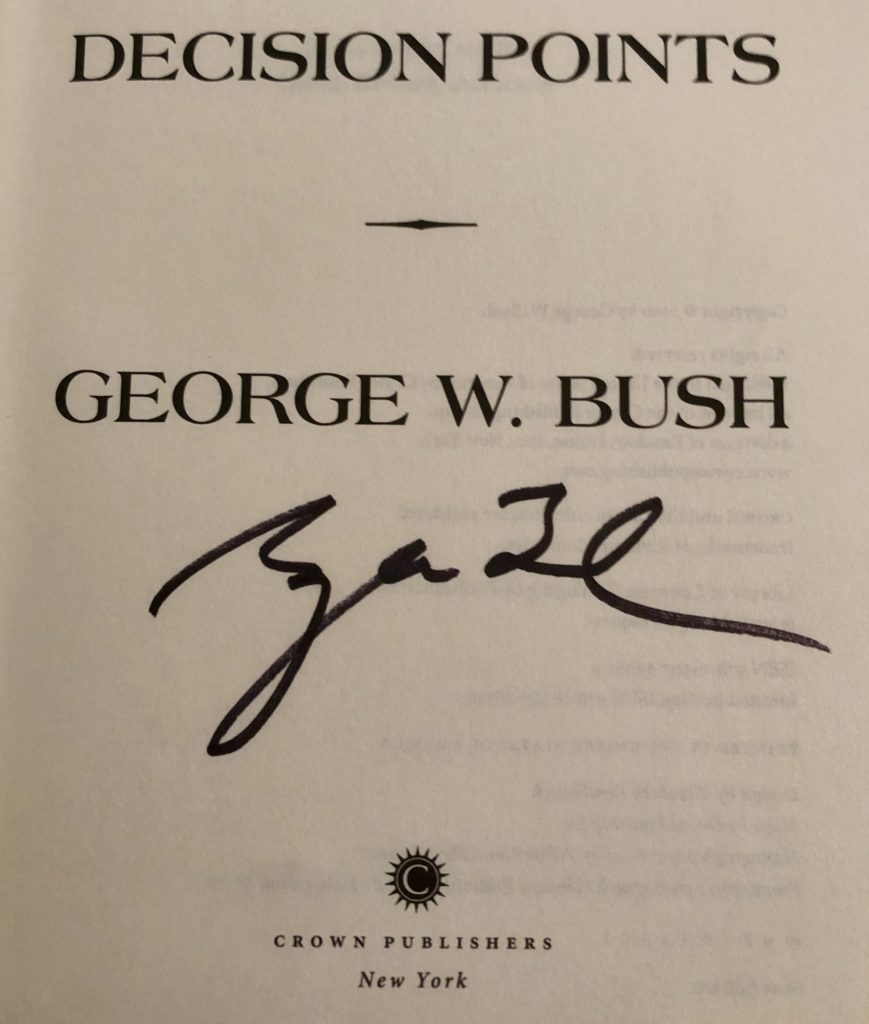There’s a fascinating piece by LBJ biographer Robert Caro about how he pieced together how powerful Texas oilmen, through the insistence of Brown & Root and speaker Sam Rayburn, made Lyndon Baines Johnson’s career by making him the conduit for Texas oil money in the 1940 election.
For some time after Johnson’s arrival in Congress, in May, 1937, his letters to committee chairmen and other senior congressmen had been in a tone befitting a new congressman with no power—the tone of a junior beseeching a favor from a senior, or asking, perhaps, for a few minutes of his time. But there were also letters and memos in the same boxes from senior congressmen in which they were doing the beseeching, asking for a few minutes of his time. What was the reason for the change? Was there a particular time at which it had occurred?
Going back over my notes, I put them in chronological order, and when I did it was easy to see that there had indeed been such a time: a single month, October, 1940. Before that month, Lyndon Johnson had been invariably, in his correspondence, the junior to the senior. After that month—and, it became clearer and clearer as I put more and more documents into order, after a single date, November 5, 1940, Election Day—the tone was frequently the opposite. And it wasn’t just with powerful congressmen. After that date, Johnson’s files also contained letters written to him by mid-level congressmen, and by other congressmen as junior as he, in a supplicating tone, whereas there had been no such letters—not a single one that I could find—before that date. Obviously, the change had had something to do with the election. But what?
Snip.
[Thomas G.] Corcoran had said that the answer to my question was money, and if money was involved the place to start looking was Brown & Root, the Texas road-and-dam-building firm, whose principals, Herman and George Brown (Root had died years before), had been the secret but major financiers of Johnson’s early career; by 1940, Brown & Root had already begun receiving federal contracts through Johnson’s efforts. When it came to money, there were no closer associates than Herman and George. I didn’t have much hope of finding anything in writing, but their files were files in which I should nonetheless have been turning every page.
I started doing that now. I requested Box 13 in the LBJA “Selected Names” collection and pulled out the file folders for Herman. There was a lot of fascinating material in the files’ two hundred and thirty-seven pages, but nothing on the 1940 change. George’s correspondence was in Box 12. There were about two hundred and thirty pages in his file. I sat there turning the pages, every page, thinking that I was probably just wasting more days of my life. And then, suddenly, as I lifted yet another innocuous letter to put it aside, the next document was not a letter but a Western Union telegram form, turned brown during the decades since it had been sent—on October 19, 1940. It was addressed to Lyndon Johnson, and was signed “George Brown,” and it said, in the capital letters Western Union used for its messages: “YOU WERE SUPPOSED TO HAVE CHECKS BY FRIDAY . . . HOPE THEY ARRIVED IN DUE FORM AND ON TIME.”
It also named the people who were supposed to have sent the checks—six of Brown & Root’s business associates. And Tommy Corcoran had been wrong: Lyndon Johnson had for once put something in writing. Attached to the telegram was a copy of his response to George. “ALL OF THE FOLKS YOU TALKED TO HAVE BEEN HEARD FROM,” it said. “I AM NOT ACKNOWLEDGING THEIR LETTERS, SO BE SURE TO TELL ALL THESE FELLOWS THAT THEIR LETTERS HAVE BEEN RECEIVED . . . YOUR FRIEND, LYNDON B. JOHNSON.” Johnson had added by hand, “The thing is exceeding my expectations. The Boss is listening to my suggestions, thanks to your encouragements.”
So there was the proof that Johnson had received money from Brown & Root in October, 1940 (and that it had brought him into some sort of contact with “the Boss,” Johnson’s name for President Franklin Roosevelt). But how much had the six donors sent? Why hadn’t Brown & Root sent the money itself? And, more important, what had happened to the money? How did Johnson use it? What was the mechanism by which it was distributed? There was no clue in the telegram, or in Johnson’s reply. But the money had come from Texas, and George and Herman had friends who, I knew, had contributed, at the Browns’ insistence, to Johnson’s first campaigns. Most of the contributors, I had been told, were oilmen—in Texas parlance, “big oilmen.”
I started calling for the big oilmen’s folders. And, sure enough, there was a letter, dated in October, from one of the biggest of the oilmen, Clint Murchison. Murchison dealt with senators or with the Speaker of the House, Sam Rayburn, the leader of the Texas delegation; he hardly knew the young congressman; in his letter to Johnson, he misspelled his name “Linden.” But he was evidently following Brown & Root’s lead. “We are enclosing herewith the check of the Aloco Oil Co. . . . for $5,000, payable to the Democratic Congressional Committee,” his letter said. Another big oilman was Charles F. Roeser, of Fort Worth: the amount mentioned in the letter I found from him was again five thousand, the payee the same.
So the recipient was the Democratic Congressional Campaign Committee, which had previously been nothing more than a moribund subsidiary of the Democratic National Committee. There were a lot of file folders in Boxes 6, 7, 8, and 9 of the Johnson House papers labelled “Democratic National Committee.” Those boxes contained thirty-two hundred pages. Some of the folders had less than inviting titles. “General—Unarranged,” for example, was a thick folder, bulging with papers that had been sloppily crammed into it. When I pulled it out, I remember asking myself if I really had to do “General—Unarranged.” But Alan [Hathway, Caro’s editor at Newsday] might possibly have been proud of me—and I wasn’t very deep into the folder when I was certainly grateful to him. One of the six people George Brown said had sent checks was named Corwin. In “General—Unarranged,” not in alphabetical order but just jammed in, was a note from J. O. Corwin, a Brown & Root subcontractor, saying, “I am enclosing herewith my check for $5,000, payable to the Democratic Congressional Campaign Committee.” Five thousand dollars. Had each of the six men mentioned in Brown’s letter sent that amount?
Snip.
The “Unarranged” file contained letter after letter with details I knew I could use. And in other folders I came across letters in which that same amount was mentioned: for example, from E. S. Fentress, who was the partner of Johnson’s patron, Charles Marsh. I knew that one of the biggest and the most politically astute of the oilmen was Sid Richardson. I looked under the name “Richardson” in file folder after file folder in different collections, without any luck. What was the name of that nephew of his whom Richardson, unmarried and childless, allowed to transact some of his business affairs? I had heard it somewhere. What was it? Bass, Perry Bass. I found that name and the donation—“Perry R. Bass, $5,000”—in yet another box in the House papers.
Letters from many big Texas oilmen of the nineteen-forties—who needed guarantees that Congress wouldn’t take away the oil-depletion allowance, and that other, more arcane tax breaks conferred by the federal government wouldn’t be touched—were scattered through those boxes. And all the contributions were for five thousand dollars. Of course, they must be. I suddenly remembered what I should have remembered earlier. Under federal law in 1940, the limit on an individual contribution was five thousand dollars. How could I have been so slow to get it? Well, I got it now. The Brown & Root contribution to the Democratic Congressional Campaign Committee, funnelled through the company’s business associates, had been thirty thousand dollars, a substantial amount in the politics of that era, and, in fact, more money than the committee had received from the D.N.C., its parent organization. And there were so many additional five-thousand-dollar contributions from Texas!
But there was a next question: how had this money resulted in such a great change in Lyndon Johnson’s status in Congress? How had he transmuted those contributions into power for himself? He had had no title or formal position with the Democratic Congressional Campaign Committee; he had tried to get one, I had learned from other files, but had been rebuffed.
I found the answer in those LBJA files. He had had George Brown instruct each of the Brown & Root contributors, and had had the other Texas contributors instructed similarly, to enclose with their checks a letter stating, “I would like for this money to be expended in connection with the campaign of Democratic candidates for Congress as per the list attached.” Johnson had, of course, compiled the list, and, while the checks received by the lucky candidates might have been issued by the Democratic Congressional Campaign Committee, each candidate received a telegram from Johnson, saying that the check had been sent “AS RESULT MY VISIT TO CONGRESSIONAL COMMITTEE FEW MINUTES AGO.”
The secret to Lyndon Baines Johnson’s rise was powerful patrons, Texas oil money, and campaign finance bundling…in 1940.
Read the whole thing. Including the part where Caro and his wife move to the Texas hill country for three years to get the real story about Johnson’s past.
I began to hear the details they had not included in the anecdotes they had previously told me, and they told me anecdotes and stories that no one had even mentioned to me before—stories about a Lyndon Johnson very different from the young man who had previously been portrayed: about a very unusual young man, a very brilliant young man, a very ambitious, unscrupulous, and quite ruthless person, disliked and even despised, and, by people who knew him especially well, even beginning to be feared.
(Hat tip: Ann Althouse.)
And if you’re interested in Caro’s LBJ books, here are the Amazon links:
The Path to Power
Means of Ascent
Master Of The Senate
The Passage of Power

